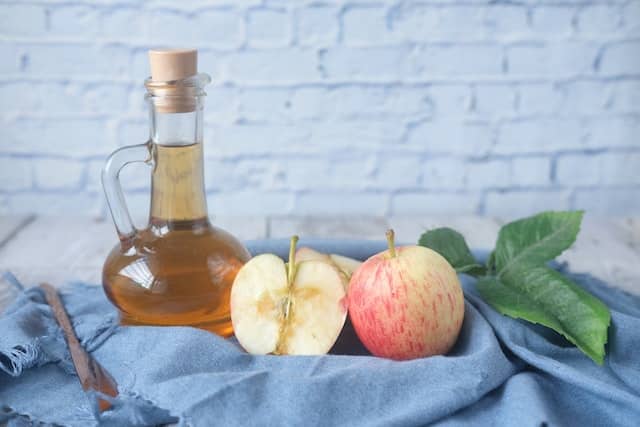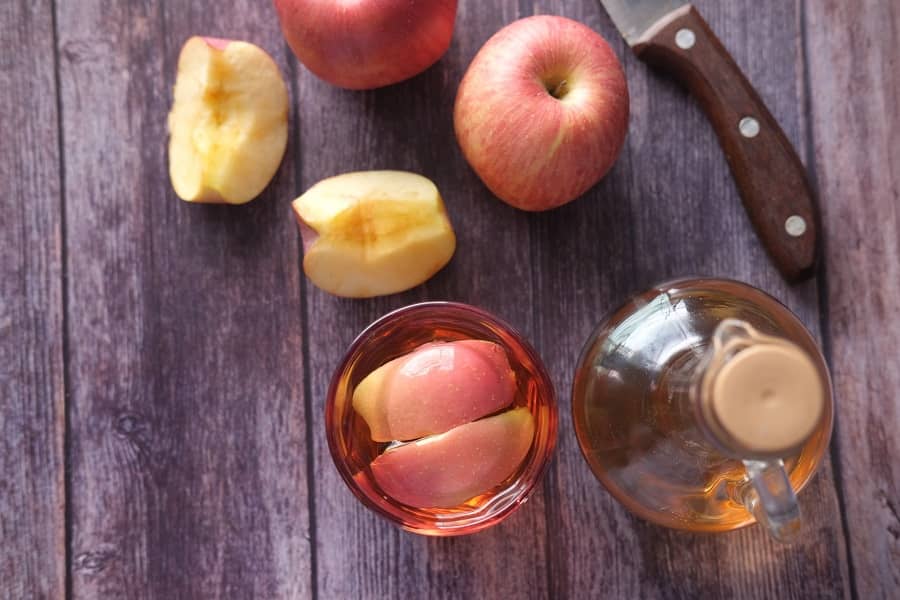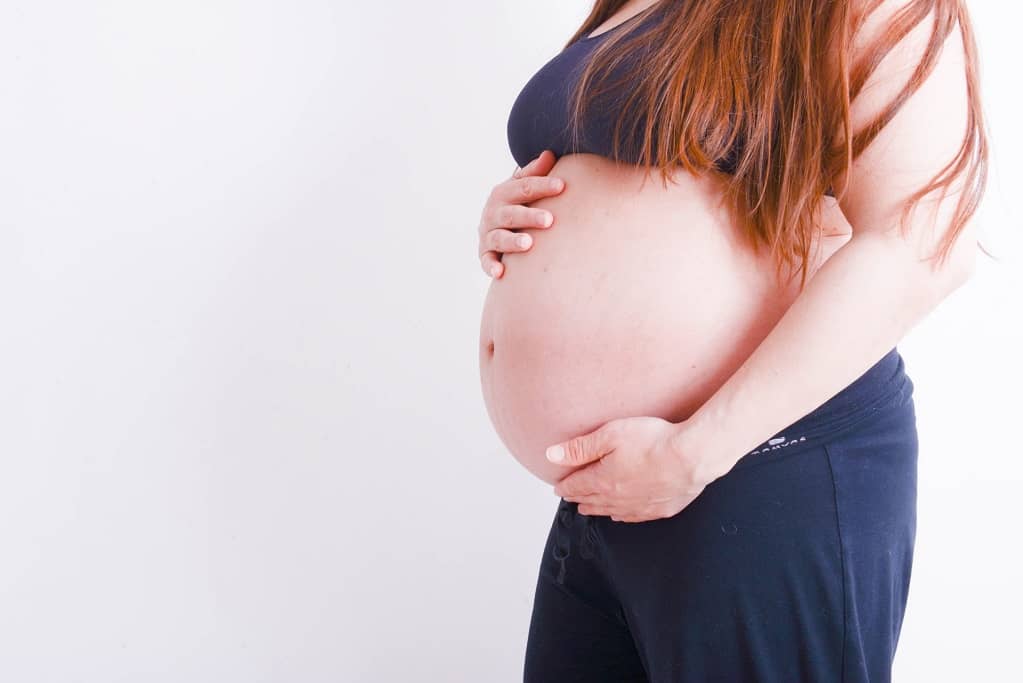Introduction:
During pregnancy, you naturally crave lots of food, fruits, and beverages, such as cherries, Gatorade, and more. While some may be healthy for you, others might not be because you are pregnant.
Taking apple cider vinegar while pregnant might be one of those foods you look towards because of the ‘perceived’ benefits, but it is not entirely true. The process of making apple cider vinegar and the types available makes you concerned about the safety of taking it when pregnant.
Read on to learn more about how apple cider vinegar is produced, the different types, its benefits, safety and risks, and alternative and recommendation during pregnancy.
This article is research-based and aims to cover every topic about apple cider vinegar while pregnant, and you can be sure to find and learn all you need to know about apple cider vinegar and pregnancy.
A shortened abbreviation ACV is used to reference apple cider vinegar to avoid redundancy.
Apple, Vinegar, Apple Cider – What are they?
Apple
Apple is an edible fruit of the apple tree and is incredibly nutritious, with multiple health benefits for pregnant women. Its rich fiber, vitamin, and antioxidant contents help boost your immune system and energy and help prevent anemia.
Vinegar
On the other hand, vinegar is an acidic (acetic acid) liquid produced from the fermentation of sugars into ethanol. It is a two-step fermentation process that converts sugars to ethanol by yeast, then acetic acid by acetic bacteria.
Vinegar can be produced from any source material, including grains, dates, figs, beer, wine, and fruits such as blackcurrant, raspberry quince, tomato, and apple.
Cider or Apple Cider
Apple cider also referred to as ‘cider’ in the US, is an unfiltered, unsweetened non-alcoholic beverage made from ground apples. Fresh apples are washed, cut, and crushed into layers of mash, then squeezed to press out the juice.
The juice may then be processed into hard cider (alcoholic beverage) by fermentation, distilled to produce apple brandy, or sold as fresh apple cider (maybe refrigerated or pasteurized).
What then is Apple Cider Vinegar?

ACV, a brownish-gold colored vinegar, is produced from apple cider which is then fermented by the two-way fermentation process to make apple cider vinegar.
First step: Yeast is first added to the apple cider to digest the sugars, converting it to alcohol (hard cider) after some days or weeks.
Second step: Acetic acid bacteria or mother of vinegar (a bacteria culture that contains cellulose and acetic acid bacteria) is then added to the hard cider (alcohol) and supplied with oxygen, converting it to vinegar with acetic acid present that gives it its sour taste.
What does Apple Cider Vinegar contain?
By the processes involved in its production, ACV may contain the following after production:
- Bacteria (mother of vinegar): usually in unpasteurized ACV. The bacteria are also called Acetobacter aceti, typically referred to as a
- Molds – by contamination
- Yeast – by contamination
Probiotics are believed to promote health benefits, hence the belief that apple cider vinegar may be good for pregnant women.
Nutritional Value of Apple Cider Vinegar
ACV may not be highly nutritious as it contains a negligible amount of micronutrients, 1% carbohydrates, and zero fat. It constitutes more of water (94%) and acetic acid (5%). Per 100 g serving, you get 22 calories.
Nutritional value per 100 g (3.5 oz.) serving:
| Nutrient | Value |
|---|---|
| Energy | 90 kJ (22 kcal) |
| Carbohydrates | 0.93 g |
| Sugars | 0.40 g |
| Dietary fiber | 0 g |
| Fat | 0 g |
| Protein | 0 g |
| Vit. A equiv. | 0 μg (0% DV) |
| Vit. B1, B2, B3, B6, B9, B12 | 0 mg (0% DV) |
| Vit. C | 0 mg (0% DV) |
| Vit. E | 0 mg (0% DV) |
| Vit. K | 0 μg (0% DV) |
| Calcium | 7 mg (1% DV) |
| Iron | 0.2 mg (2% DV) |
| Magnesium | 5 mg (1% DV) |
| Phosphorus | 8 mg (1% DV) |
| Potassium | 73 mg (2% DV) |
| Sodium | 5 mg (0% DV) |
| Zinc | 0.04 mg (0% DV) |
Apple Cider Vinegar and Pregnancy
The relationship between apple cider vinegar and pregnancy comes from the ‘mother of vinegar present in ACV, which is a probiotic that is believed to provide health benefits and, as such, may be beneficial to pregnant women. However, this claim is not scientifically backed and is considered ‘unsafe’ for pregnant and breastfeeding women and children (reference no.)
The presence of bacteria and sometimes contaminants (molds and yeast) raises concern for pregnant women.
Types of Apple Cider Vinegar (Pasteurized and Unpasteurized)
There are two types of apple cider vinegar – pasteurized and unpasteurized APV. The difference between these two comes at the vinegar stage when one is filtered, and the other is left unfiltered.
Difference:
The filtered vinegar has the mother of vinegar (probiotic bacteria) filtered out and then pasteurized, giving it a clear brownish-gold color. At the same time, the unfiltered vinegar still has the mother and is not pasteurized, making it cloudy.
Another difference is that if the filtered and pasteurized vinegar still has non-fermented sugars and alcohol present, it will remain. While the unfiltered, which still contains the mother, will continue converting any available sugars and alcohol to vinegar.
Other ACV supplements are apple cider vinegar gummies, pills, and powders.
Insights into Research Journals and what Nutritionists say about ACV
Is Apple Cider Vinegar Safe During Pregnancy?
There is no minimal scientific research that supports any of the claims that ACV is beneficial for the health talk more of when pregnant. Instead, an evidence-based reference book on herbs and supplements, Natural Standard Herb & Supplement Guide, considers apple cider vinegar unsafe for use by pregnant and breastfeeding women.
However, Drugs.com says apple cider vinegar is “generally recognized as safe” (GRAS) when used as food. And recommends that you “avoid amounts greater than those found in food because safety is unproven.”
This implies that you may consume food that lists ACV as an ingredient used proportionately and nothing more than that.
Unpasteurized Apple Cider Vinegar while Pregnant
Due to the processes involved in producing unpasteurized apple cider vinegar, contaminants like mold and yeast may be present after production (ref).
Mold or yeast contamination implies that it can predispose you to food poisoning. Your immune system is usually slightly compromised during pregnancy, increasing the risk of food poisoning.
The fetus is also at a risk of miscarriage, stillbirth, and other complications, just as some teas are to be avoided during pregnancy because they can cause miscarriage.
On the other hand, consuming mold contaminants can produce toxic chemicals called mycotoxins that can cause disease and sometimes death.
Safe to say, pasteurized apple cider vinegar may be a better and safer alternative. You may only not get the ‘perceived benefit’ from it, especially the probiotic benefits.
Can Apple Cider Vinegar Help in Pregnancy? – Looking at the Benefits
Beyond the recommendation of the evidence-based reference book, what are the perceived benefits of taking ACV during pregnancy?
- It may lower blood sugar
- It may help with morning sickness
- It may help with heartburn and ease acid reflux
- It may help improve digestion and metabolism
Bragg’s Apple Cider Vinegar During Pregnancy – is it safe?
Bragg’s apple cider is the usual vinegar produced in the same process explained above. Therefore, it follows the same recommendation that Braggs ACV is not recommended to be taken during pregnancy.
Is Braggs Apple Cider Vinegar Pasteurized?
The Braggs apple cider vinegar is not pasteurized. It is unfiltered, comes with the mother of vinegar, and is unpasteurized.
Apple Cider Vinegar Gummies While Pregnant
Apple cider vinegar gummies is a supplement containing ACV and specially formulated with Vit. B9 and B12.
The manufacturers claim gummies improves the immune system, promote weight loss, improve metabolism and regulate blood sugar level.
However, the base ingredient, ACV, is still the unpasteurized apple cider vinegar that is unfiltered and contains the mother of vinegar (probiotic bacteria).
Therefore, apple cider vinegar gummies is not recommended when pregnant.
Final Thoughts
While there are limited studies that show the benefits of taking apple cider while pregnant, more authoritative sources strongly recommend that ACV not be taken during pregnancy, especially the unpasteurized apple cider vinegar.
A better alternative would be the pasteurized ACV, just that you will not get the perceived benefits of the probiotics.
On the hand, there are other things you may not consume when pregnant. One such is sleepytime tea, which is also not safe to drink when pregnant.
Resources
Vinegar: Wikipedia – Vinegar
Apple cider: Wikipedia – Apple cider
Mother of vinegar: Wikipedia – Mother of vinegar
Apple cider vinegar; Nutritional Value table: Wikipedia – Apple cider vinegar
Acetobacter aceti: Wikipedia – Acetobacter aceti
Apple Cider Vinegar: Natural Standard Herb & Supplement Guide: An Evidence-Based Reference – source1, source2, source3
Drugs.com: Apple Cider Vinegar; Molds, Yeast
Yeats, Molds: Yeasts, Molds, and Mycotoxins





Cheers, this was a good read.